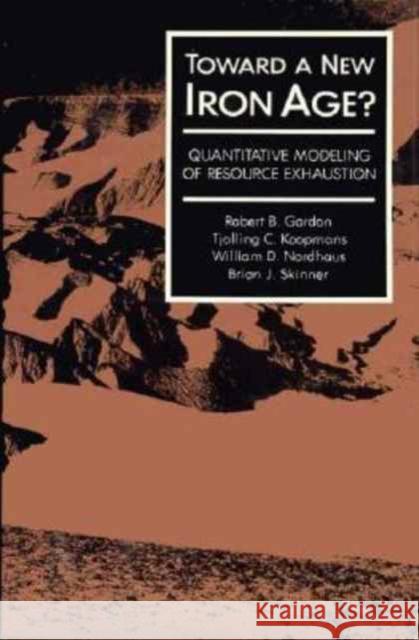Toward a New Iron Age? » książka
Toward a New Iron Age?
ISBN-13: 9780674898189 / Angielski / Twarda / 1987 / 200 str.
Experts agree that the earth will eventually run out of certain low-cost, nonrenewable resources, possibly as early as a century from now. Will the transition to reliance on other, more abundant resources be smooth or discontinuous? Might industrial societies experience a marked decline in living standards--a radically different kind of society from the one we now know? Geologists maintain that once inexpensive high-grade resources are exhausted, economic growth will slow. Economists are more optimistic: they believe that new technologies and materials will be substituted rapidly enough to prevent minor economic dislocations.Toward a New Iron Age? takes an important step toward reconciling these divergent views. It is the most comprehensive study of the economic consequences of resource depletion--in particular, it is a thorough exploration of the prospects for one key metal, copper. The authors draw on geological and engineering data to calculate the resources now available and to assess the feasibility of substituting alternatives. Using linear programming and a range of hypothetical base conditions, they are able to estimate the course, through the next century and beyond, of several crucial factors: the rate at which copper resources will be used and when they will be depleted; how the price of the metal will fluctuate; when alternative materials will be substituted, in what patterns, and at what costs. By the late twenty-first century, the authors believe, low-cost copper will no longer be available. Industrial societies will have to operate on more abundant resources such as iron, silica, and aluminum. They will enter, in short, a New Iron Age.











